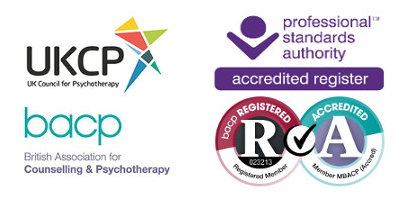Therapy for Midlife Crisis & Transitions in Life
Society is generally negative about the process of ageing, but that doesn’t mean you have to be. As you go through life, it is possible to retain a youthful spirit, a sense of wonder & possibility, and the desire for adventure.
Many people reach an age when they start to examine their lives and perhaps confront their mortality as their sense of identity undergoes a shift. ‘Midlife Crisis’ is a loosely defined term for a set of experiences that can be very challenging at various points between your 30s and your 60s. Midlife Crisis can affect anyone regardless of gender or background.
Loss can trigger a Midlife Crisis
A Midlife Crisis can be triggered by regrets about unfulfilled dreams, a discontent or dissatisfaction with how life has turned out, or a feeling that you are not at peace with the passage of the years.
Alternatively, any of the following losses can provide the ‘shock factor’ that opens the door to a Midlife Crisis.
The loss of:
- Your youth – a ‘milestone birthday’, perhaps 40th or 50th, but it may be the 39th or the 47th that is the trigger.
- A sense of an open-ended future, and of the possibilities and opportunities that went with that.
- Your younger body – the physical signs, less energy or flexibility, greying hair, slower recovery from illness or physical exertion.
- The illusion of immortality.
- Children – children growing up, leaving home, leaving behind an ’empty nest’.
- Parents or friends – bereavement, and fears about one’s own old age and death.
- Work or career and the established identity which went with that (redundancy or retirement and the ‘post-retirement void’).
- Libido (sex drive).
- Fertility and its possibilities, and the ending of menstruation (menopause).
- Vigour, and the feeling of being attractive and vibrant. This may be linked to a change in hormone levels such as testosterone.
- Relationship or marriage – separation, divorce or the death of your partner.
- Confidence, self-esteem and trust in yourself.
- Security, which can come about in many ways, such as an alteration in your work role or responsibilities.
Therapy for Midlife Crisis and Life Transitions supports you in finding out what, for you, may be the gains that outweigh the losses.
A real-life example of Midlife Crisis might be a married man of 50 who starts drinking more often, spending more money and fantasising about going to a prostitute. He tells himself it’s just a phase which will soon pass. Midlife Crisis Therapy helps him to identify that he has been depressed for a while and that this has been triggered by feeling that his youth has ended and that he has not accomplished what he wanted to. He might also acknowledge his disappointment that his wife is not more adventurous and no longer seems to care about her appearance and that he does not know how to discuss this with her.
“Everything except language knows the meaning of existence. Trees, plants, rivers, time know nothing else. Even this fool of a body lives it in part and would have full dignity within it but for the ignorant freedom of my talking mind.” Anon.
Midlife Crisis and Regression
The stereotypical male Midlife Crisis involves regression to a younger time of life, and it can involve chaotic, reckless changes in behaviour – suddenly buying an expensive sports car, abandoning career and family, or having affairs with younger women – that seem ‘out of character’.
There is an urgent, driven quality to all the activity. It can sometimes seem as though the man is unconsciously putting in a lot of effort to keep sadness, boredom, lethargy, anxiety and depression at bay.
Women at this point in their lives may suddenly become more assertive, engaging with study, work, politics or travel. Some abandon domestic ‘bliss’ in favour of pursuing ‘freedom’, adventure and exciting new horizons.
Both men and women are seeking, through such behaviour, to express something to the world and to themselves about their true self and their unique potentiality.
Midlife Crisis Therapy and Midlife Opportunity
Everyone will have to deal with times of major life transition, which require adjusting to new identities and new perspectives. These transitions are not always smooth, but people experience a midlife crisis for a purpose:
To step into more of who they are and to make life more meaningful.
For most people the years from the mid-20s through to the mid-50s are the ‘Alpha Adult’ stage of life, the period when you construct your place in the world – home, family, career. It is an outward-focused phase.
Then, as you move through your forties and fifties, you begin the transition into a dawning, self-focused phase sometimes called the ‘Second Adult’.
Ending the ‘Alpha Adult’ is a major transition, and forming the ‘Second Adult’ is little discussed outside of therapy. This is a largely ‘uncharted’ life stage, between about 60 and 75, when we are not yet truly ‘ageing’, where there lie wonderful opportunities for reflection and renewal, and for a deeper, more meaningful experience of life.
Midlife Crisis Therapy provides a safe space for honest introspection, processing and exploration of your feelings, assumptions, fears, hopes, longings, yearnings and ideals. When supported in therapy, people may re-evaluate and review their careers and change them, or choose to return to education, or take up a renewed interest in travel, new sports, and new skills. It can be an exhilarating time in your life.
“I thought of you a lot yesterday while attending a lecture on Envy and Gratitude. The more we talked about gratitude, the more I thought of you and how much I am grateful for your help in seeing how I can move on to new things.” – C.
An Existential Approach to Therapy for Midlife Crisis, Ageing & Life Transitions
Midlife Crisis Therapy with Marcus helps you to know yourself, appreciate your values, strengths and resources, and consolidate what you’ve learned on the bumpy road of life.
One particular strand of therapy which is important when working with Midlife Crisis issues and Age Transitions, is existential psychotherapy. This therapy helps you to view your life experience as a journey rather than a trial – and a journey that’s full of wonder and curiosity.
The existential perspective starts with four, potentially frightening ‘givens’ of life:
- Mortality
- Free will (and personal responsibility)
- Aloneness (alongside our longing to be connected to others)
- Apparent or perceived meaninglessness
Therapy moves you towards being honestly aware of these realities, but in a balanced way, and without feeling overwhelmed by dread or anxiety about them. Rather than paralysing you with fear, the ‘givens’ will help you by constructively informing the choices and opportunities that lie ahead of you.
Therapy for Midlife Crisis & Transitions in Life
Take the first step and contact Marcus to talk about your worries and anxieties at his point in your life.
Here are some interesting articles and pages on Life Transitions and reaching your Mid Life that you might find helpful
How Baby Boomers Retire – An article updating the image and meaning of ‘late mid adulthood’: Read the article here.
Creative At 94 – A different perspective on ageing: Read this article.



